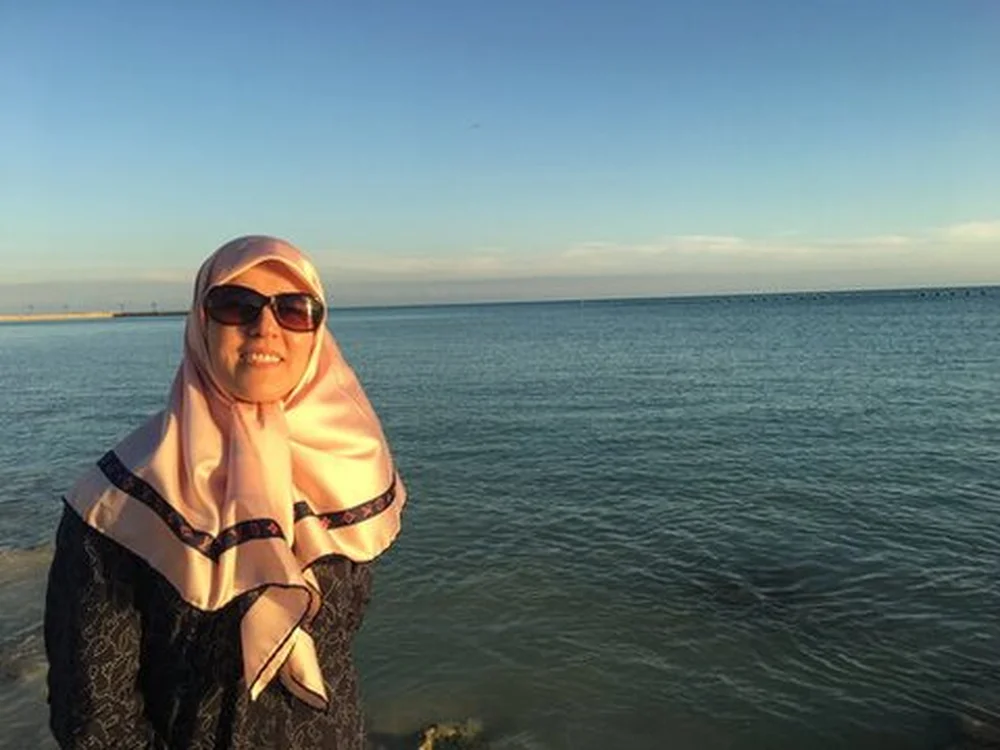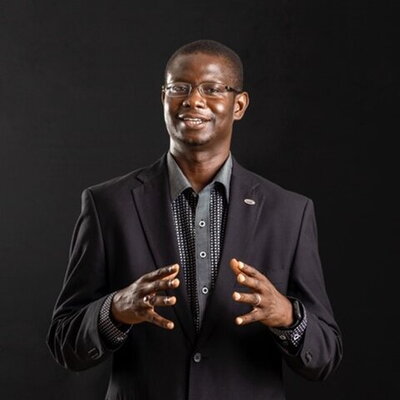
Illinois Global Institute recently featured three Less Commonly Taught Languages instructors, including two from the Department of Linguistics. Meet Azadeh Aghighi, director of the Persian Studies Program and Vieux Toure, director of the Wolof Program.
Azadeh Aghighi received her Ph.D. in Middle Eastern languages and cultures with a specialization in Islamic studies and is currently a lecturer in Persian language and director of the Persian Studies Program in the Department of Linguistics. Aghigi has taught courses on Islam, as well as Arabic and Persian languages at both the graduate and undergraduate levels.
Could you briefly describe your UIUC responsibilities?
As a Persian language lecturer at the University of Illinois Urbana-Champaign, my main duties encompass teaching Persian language courses across all levels—elementary, intermediate, and advanced. I am also involved in developing curriculum materials and ensuring a supportive learning environment for students. Engaging in academic discussions, collaborating with colleagues to improve the language education program, and organizing cultural activities such as Persian movie screenings, Persian teatime, and other events are integral aspects of my role. These endeavors aim to provide students with a comprehensive and immersive experience in Persian language and culture.
Why do you believe your job is important?
I see my role as instrumental in cultivating cross-cultural understanding and appreciation for the Persian language and culture. Teaching Persian is my contribution to fostering a more diverse and inclusive academic environment. Witnessing students not only acquire language proficiency but also develop a deep understanding of the culture is exceptionally gratifying. Knowing that these skills will positively impact their future pursuits, particularly for those aspiring to high-profile careers like diplomacy, underscores the significance of my role. It's my responsibility to impart the richness of the Persian language and offer insights into Iranian history and culture, providing them with a comprehensive understanding that will be valuable in their future professional endeavors.
What do you enjoy most about your job?
The best part is seeing my students excited and making progress. Watching them understand Persian and show real interest in the culture is really rewarding. I'm motivated by the chance to spark their love for language and culture, getting them ready to see the world from a global perspective.
What is the best part of your workday?
The highlight of my workday lies in the interactions with students during and after class. Their eagerness to learn, engagement with the material, and thoughtful questions create a positive and dynamic atmosphere. These moments of connection and the exchange of ideas contribute significantly to a fulfilling teaching experience.
What is your favorite non-work hobby or activity?
I am passionate about researching topics in Islamic studies and actively contributing to scholarly discussions, conferences, and publications in this field. Beyond my academic pursuits, I also find joy in playing volleyball, swimming, spending time with friends, and engaging in various social activities.

Vieux Toure teaches Wolof, a language spoken by over 80% of the Senegalese people. It is offered at all levels at UIUC. To learn more about Wolof, visit the Department of Linguistics website.
Could you briefly describe your UIUC responsibilities?
I serve as an instructor in the Linguistics department and the Wolof Program director. As an affiliate of the Center for African Studies, I also teach Modern African literature. Furthermore, I currently serve as the advisor to the African Student Organization on campus.
Why do you feel your job is important?
As an educator, I am committed to equipping students with critical linguistic, transcultural, and literary skills to thrive in a competitive global society. I believe that preparing students for a global society is one of the ultimate goals of the humanities. I am also committed to ensuring that students in my Wolof and African literature classes are properly guided to meet these objectives, for students are the seeds of change and reflect our educational principles and values.
What excites you most about your job?
Teaching and research are nothing short of a give-and-take process, which gets more interesting as we have much to learn and appreciate from the digital natives and students who come from all walks of life. Wolof, like other African languages, literatures, and cultures, allows us to bridge the gap between academia and real life while constantly traveling from and within our own mental backyard.
What is the best part of your workday?
I always look forward to intellectually engaging and interacting with students, whether in the classroom, during a cultural event, or during my office hours. I have stressed my open-door policy as I avail myself to meet with them outside of our regular class schedules. When students come to my office, I am enthusiastic to share more time to discuss and appreciate class-related topics of interest to them. It's also a chance for me to scribble on my whiteboard and further explain complex socio-cultural topics. I’d be remiss to finish without mentioning how much I enjoy the excellent rapport and collegiality I have with my colleagues from the Linguistics department and the Center for African Studies.
What is your favorite non-work hobby or activity?
I love listening to Xassidas or Odes and watching Lakers highlights as a GOAT fan.
Editor's note: This story first appeared on the Illinois Global Institute website.